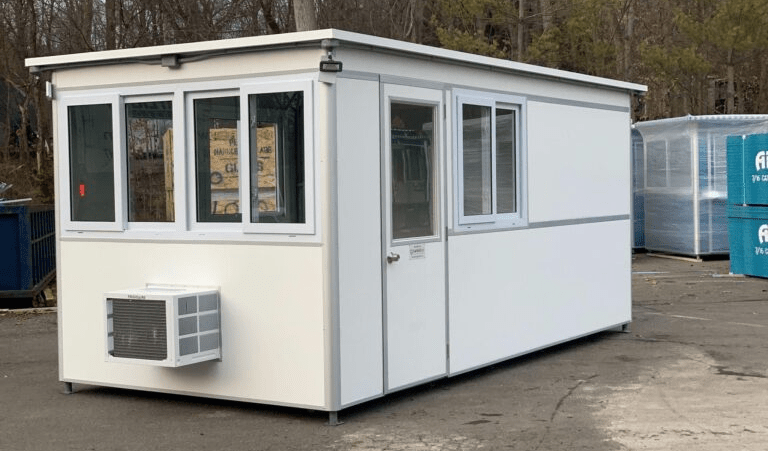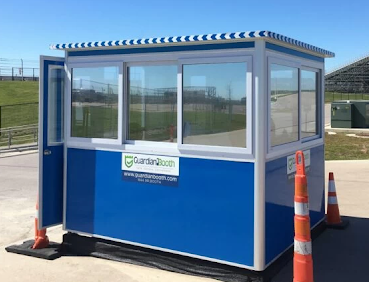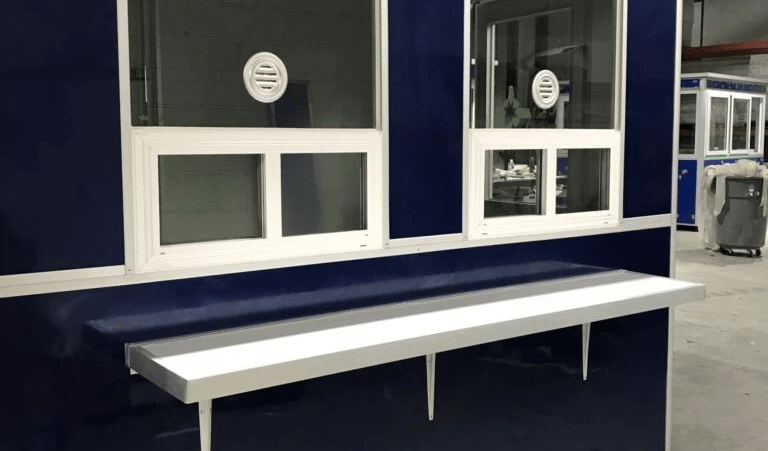Protection from Coronavirus and Other Disease: Guard Yourself!
Protection from coronavirus contraction became a global concern in the winter of 2020, and for good reason. The novel coronavirus, Covid-19, is a highly contagious disease, more deadly and more easily contractable than the common flu. Like outbreaks of Ebola, MERS, and SARS before it, Covid-19 is something to prepare for and actively fight. Coronavirus prevention is paramount.
But it is no time to panic. It is time to plan and prepare.
In our modern, connected world, global pandemics are a virtual certainty. Whether Covid-19, MERS, influenza, or some future novel virus, corona or otherwise, everyone should be prepared to protect themselves and their community. Security professionals need to understand viral transmission, protection, and security measures.
When it comes to prevention from communicable diseases, the best advice is as simple as what your mother always told you – wash your hands and stay away from people who are coughing. And yet, with something like a coronavirus, we all know it is simple and complicated at the same time.

This article will provide information on what coronavirus is, but it will go further and help you understand how to protect yourself, your family, your employees, and the property and people of those who hire you from infection. Here are 7 steps to help you protect yourself, protect others, and keep your business thriving.
Tip #1: Be informed!
Understanding Covid-19, the Novel Coronavirus
When the outbreak first began, we heard this virus is called a “coronavirus”. This was non-specific – there are dozens of known coronaviruses, including MERS and SARS. So the media began calling it the “novel” coronavirus, novel simply meaning “new” or “latest.” Then, scientists gave it a more specific name: Covid-19. It is this name that we should use because, more than likely, there will be another “novel coronavirus” in the future. Using proper names now just makes sense.
Covid-19 originated in China, where it quickly became an epidemic, which is a disease that was spreading quickly and infecting many people. The virus soon broke the confines of China’s borders, spreading to Italy and other countries and becoming a pandemic (an epidemic that crosses many national boundaries). Soon, Covid-19 hit more than 100 countries and became a definite global pandemic.
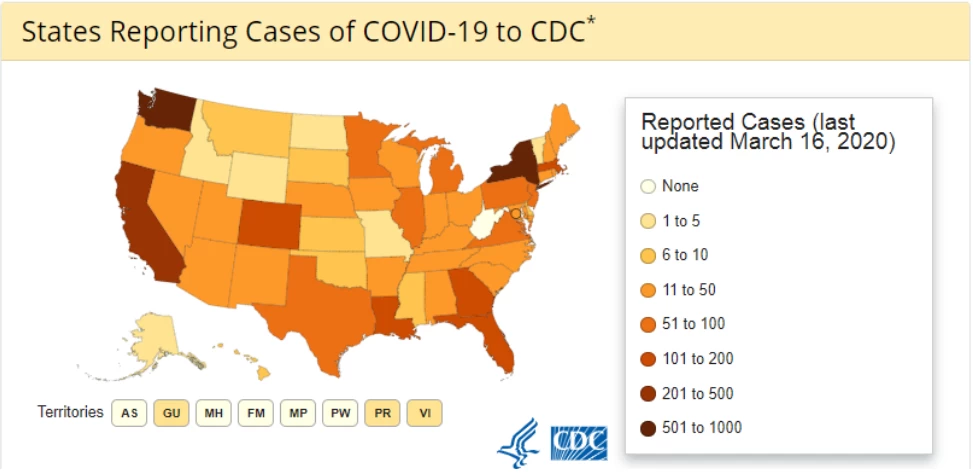
Some people have claimed that Covid-19 is no more dangerous than the seasonal flu, but the fact is that this disease is novel. It is new to us, and thus not as well understood as the flu. Preliminary data suggests that it is likely 10 times as deadly as the typical seasonal flu. Covid-19 is also believed to be more contagious, and extremely deadly to people with unhealthy immune or respiratory systems.
This means it is not something to mess with. But what disease is something to mess with?
A disease like this, left unchecked, has the potential to overwhelm the health care system in any country. If we do not take measures to stop Covid-19, or any respiratory coronavirus (such as MERS or SARS), we could quickly find that all our hospital beds are full, there is a waiting list for ventilators, and doctors have to make decisions about who gets life-saving treatment and who does not.
This is not a situation that we want to find ourselves in.
So, what is the answer?
Prevention. To the best of our ability, we practice prevention, which leads us to a new international buzz-phrase: social distancing.
Managing the Dangers
In March of 2020, the United States Center for Disease Control and the World Health Organization began putting out a variety of recommendations and a plethora of information. In the United States, recommendations have included closing schools and minimizing social gatherings. Even Disney World in Florida voluntarily closed its doors. Why?
As of March 2020, we had no vaccination for Covid-19 and no cure. In fact, we have very few tests (relatively speaking), and we have no immunity from the disease as a society. We were vulnerable.
Like any cold or flu virus, coronaviruses are spread mostly through human contact. This includes shaking hands, touching the same object within a few hours of each other, hugging, being close enough to breathe in the air (and viral particles) that another person sneezes or even breathes out. There is no real mystery to how people contract this disease, and thus no mystery on how to avoid it.
The only protection from contagious diseases is to maintain our distance from sick people.
Oh, wait. But who is sick? That’s the catch. With any virus, people who contract it will get sick to varying degrees. In fact, some people can carry the disease even though they feel fine and show no symptoms. And they can pass it on to other people. We call these people asymptomatic – they usually have no idea they are carriers. Yet they can spread the virus across a city in a day.
When we talk about coronaviruses and even the flu, we are talking about the potential for people to contract serious illnesses that are at the very least uncomfortable, for many people will cause them to be out of work, and at worst can lead to hospitalization or even death.
But there is good news.
We know how to prevent infectious diseases, and it is actually quite simple, at least in theory.
Tip #2: Implement Simple Hygiene Procedures Immediately
The spread of any virus, including coronaviruses, can be severely hampered if people practice simple hygiene and good habits. It is important that you educate your employees on good hygiene, not just during a coronavirus epidemic but all year round.
![]()
Following is a list of best practices to preventing transmitting or catching a virus:
- Stay home from school, work, and other activities when you are sick, especially if you have a fever.
- Wash your hands before and after nearly any activity, such as eating, shopping, using the restroom, or touching things. Washing your hands with soap and water for 20 seconds is best, but if you cannot wash then use hand sanitizer.
- Avoid shaking hands during an outbreak or viral season. In March 2020, the fist and elbow bump became a popular greeting. Maybe we should do that every winter to slow down flu transmission.
- Avoid touching your face, unless you have just washed your hands.
- Sneeze or cough into your elbow.
- Maintain a distance of at least 3-6 feet from people whenever you can, especially people that are showing symptoms of illness.
- Avoid eating in close proximity to other people.
- Do not let others use your desk, cell phone, computer, and so forth. Wipe down these surfaces with a 90% alcohol or another sanitizer regularly.
Tools and Procedures for Security Companies
Being in a security job becomes much more difficult – and dangerous – during an epidemic of the viral outbreak. Security guards are often called upon to get close to people, to talk to people in person, to interact with crowds, and in some cases to physically restrain people. It can be difficult to stay safe in such circumstances. But there are ways to do so.
For security professionals, keeping the people that they are guarding and serving safe is important, as is keeping their own employees safe. The remaining tips apply to all people to some extent but are specifically geared to those in the security industry.
(Looking for more information specific to coronaviruses and Covid-19? Jump down to the end of this article for a list of questions and answers on these viruses.)
Tip #3: Keeping Supply Chains Open is Paramount
For any company – and society as a whole – keeping the supply chain open is important. This means ensuring that necessary goods can reach those in need. We, as a society, cannot fight any health issue if food, water, and medical supplies cannot reach their destinations. Thus, security companies may be employed to help keep those supply avenues open, to help ensure that people are not looting or hoarding, and to help control people who might behave badly.
However, security personnel must also worry about their own supplies – masks, gloves, food, and more. Ensuring that your own supply chains can stay open means talking to vendors and talking to your employees to ensure that everyone has what they need to continue to get the job done, even when things get tough.
Tip #4: Secure Perimeters & Checkpoints
One of the best protections for coronavirus is a secure perimeter. In other words, you have to keep people who are sick out. The simplest way to do this is by securing entrances to buildings and grounds with gates and doors. You may need to hire a security guard and set up a security shack to help implement this.

Note that when it comes to securing a perimeter, in addition to a security booth or security shack, you must have well-trained guards who know how to screen for coronavirus, at least to the extent of spotting people who are exhibiting symptoms and prohibiting their entry onto the property. (You may decide to have personnel that is trained in the medical field who will screen people by taking their temperatures.)
Security guards working out of security shacks should know who to let in and who not to let in. They should be trained to turn away people who are symptomatic but also be trained in effective customer service skills so that they can provide these customers with recommendations of what to do next (for example, to go to a local clinic or call their doctor).
Important Tool: Protective Equipment
Any person working directly with the public during a viral outbreak needs to have basic safety equipment including disposable gloves and masks. While wearing a mask is not a guarantee against infection, wearing a disposable mask can significantly decrease the risk of getting a virus. Employees who are working with people who are potentially infected can benefit from wearing masks. People who are infected can offer at least some protection to others by wearing masks themselves.
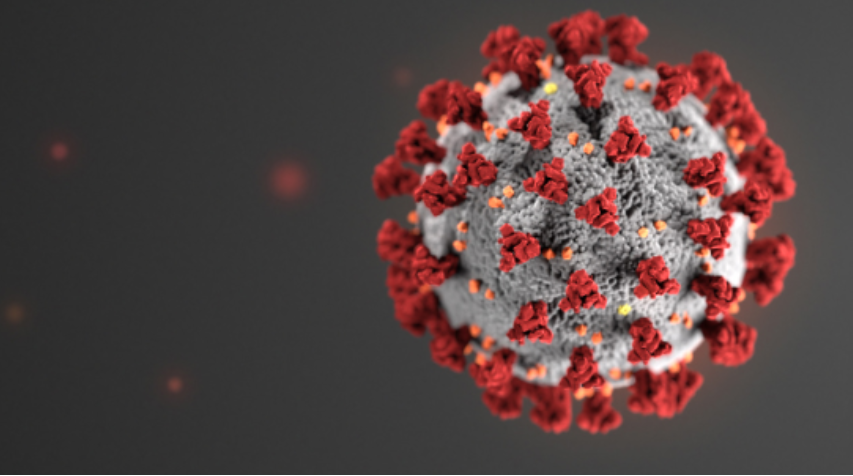
Similarly, wearing gloves can also help prevent disease transmission, as long as the guard is trained not to touch their face while wearing the gloves, and to wash their hands after removal of the gloves.
Important Tool: A Portable Security Booth
Having a security guard booth located near ground entrances can be paramount in this effort, as a security shack gives guards a place to stand, and it can help them maintain a distance from potentially infected individuals. A portable guard shack for sale is also an obvious place for people to stop and request entrance to the grounds.
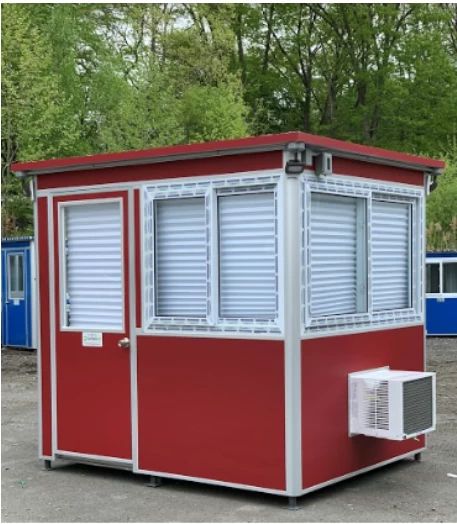
Also, security shacks can be used as a checkpoint to screen visitors prior to entering a location.
For example, some hospitals in the throw of an epidemic will erect a small tent or Covid booth at the main entrance where all visitors need to be screened prior to entering the building.
In instances when money still needs to exchange hands, a cashier booth is also a good idea to keep other employees at a distance from the public and out of harm’s way. In fact, when it comes to keeping your guards themselves safe, a mobile cashier, office, security shack, or guard booth is one of the best protections for coronavirus.
Remember that as the old saying says, an ounce of prevention is worth a pound of cure – keeping sick people away from your buildings and people is paramount. With the great need for better covid protection, you can search for a portable guard shack for sale and repurpose it to serve your healthcare needs. Also, check out sanitizing booth manufacturers for booths that take a proactive role in the fight against viruses by releasing a mist of sanitizing spray over the entire surface.
Important Tool: Knowledge
We mentioned it in the first tip, but knowledge is also a tool. Not only do security men and women need to understand at least a bit about the disease at large and how to prevent transmission, but they should also understand any quarantine procedures or governmental regulations that have been put into place.

For example, in March 2020, the CDC recommended that people avoid gathering in groups of 50 or more; soon after, the White House suggested avoiding groups above 10. In Italy, no more than one person was allowed into a store at a time at the height of the epidemic. Many states in the U.S. closed down restaurants and bars, allowing only carryout service or no service at all. Security guards must be up to date on these policies and recommendations at all times.
Tip #5: Open Multiple Channels of Communication
Protection from coronavirus requires effective and open channels of communications. This means that you should ensure that your guard booth is outfitted with both hand-held radios as well as cell phones to ensure constant communication. Using an intercom system, walkie talkies, and handheld radios can help ensure connectivity even if cell services go out.
In addition, intercom systems can be installed in the covid booth so that those working inside can communicate with customers on the outside without coming into direct contact.
Open communication can also mean ensuring that you communicate effectively with your employees and with your customers. Ensure that your employees and customers know that you care about them and their well-being and that any actions that you take are intended to protect them. During the Covid-19 outbreak, many organizations allowed unlimited sick leave in order to ensure that sick employees stayed home; nearly every major organization created a newsletter to keep their employees informed on the virus and its impact on the organization, and a website to keep customers informed.
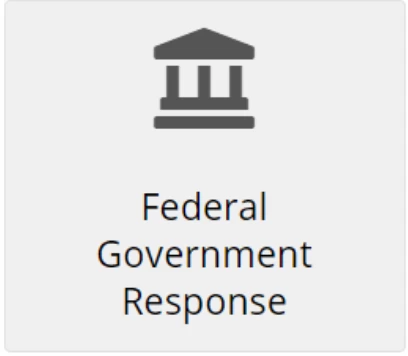
During an epidemic, it is imperative that we keep communication open and keep everyone informed about what is going on, and what our organizations are doing.
Tip #6: Anticipate Failure Points
No matter how intelligent we are or how hard we work, things can always go awry. But if we plan ahead, we can often mitigate the worst disasters.
As one article from Vistage research center describes, “Management should be thinking about any and all critical systems, vendors, and employees that would dramatically impact service levels if they were suddenly unavailable. In many industries, specialized workers require credentials and security clearances, and should they be absent, your projects may be at risk.”
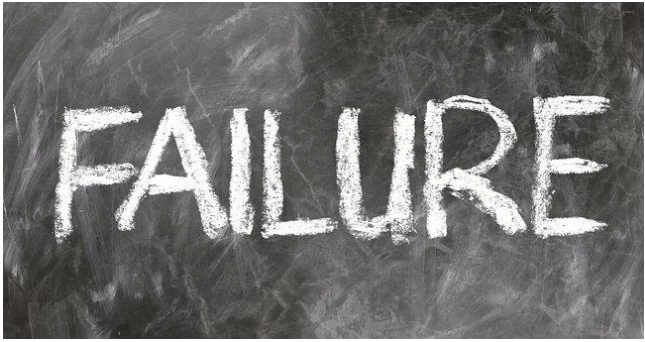
The point here is that you need to know what your most critical systems are, and what you can do to keep them intact. Talk to your suppliers, vendors, employees, and customers and find out what potential issues they could encounter, and how that fits in with your own plan. Gathering information to make the best decisions and preparations possible is paramount.
For example, one failure point can be having your guards fall ill. Having a security shack or guard shack with its own restroom can be instrumental in minimizing your guard’s exposure to the public and to virus germs. Having security cameras and even remote communications systems not unlike the popular Ring doorbell system can, in a pinch, help to stretch a small staff of guards that has been reduced by illness, cover a larger area.
Tip #7: Stay Up to Date
You are already doing that simply by reading this article. But getting informed is not something that you do once and are done; it’s a continuous process. When it comes to disease and viral outbreaks, things change quickly and you need to stay informed. Implement cautionary measures immediately, and ensure you have proper security shacks to protect your premises.
To learn more about prevention of coronavirus and managing security during a pandemic, check out the Q and A below as well as the variety of links to the CDC and other reputable sources throughout this article.
But don’t stop there.
Watch the news, keep on learning the current state of affairs, and always be vigilant.
Quick Answers to Questions about Coronavirus
Q: I’m a cashier. Does handling money put me at higher risk?
A: No. Nor does spending cash versus using credit cards. The trick is to wash your hands after handling cash before you touch your face.
Q: Can I get coronavirus from touching something that is infected?
A: Coronavirus (and the flu) cannot penetrate your skin. You get them by touching something that is infected and then touching your face, or by breathing particles that are still hanging in the air. If you wash your hands regularly and do not stand close enough to share air with another person then you have a low chance of contracting these viruses.
Q: How long can this virus live on a surface?
A: We are not entirely sure, but based on our knowledge of other viruses we can say that this virus can live on surfaces for anywhere from a few hours to a few days.
Q: Can I get Covid-19 through food?
A: According to the CDC, “coronaviruses are generally thought to be spread from person-to-person through respiratory droplets. Currently, there is no evidence to support transmission of COVID-19 associated with food. Before preparing or eating food it is important to always wash your hands with soap and water for 20 seconds for general food safety.”
Q: Will warm weather stop the virus?
A: Some viruses, such as the flu, tend to be seasonal. However, every virus is different and we do not yet know much about Covid-19. It may slow dramatically or end as summer hits, or it may not. It could also become seasonal, returning each year. We simply do not know.
Learn more about protecting yourself from coronavirus from the CDC or check out their FAQ page.
Guardian Booth can help in the battle against coronavirus with Covid-19 Testing Booths.
Start building your own Covid-19 Testing Booth to get a price quote.

